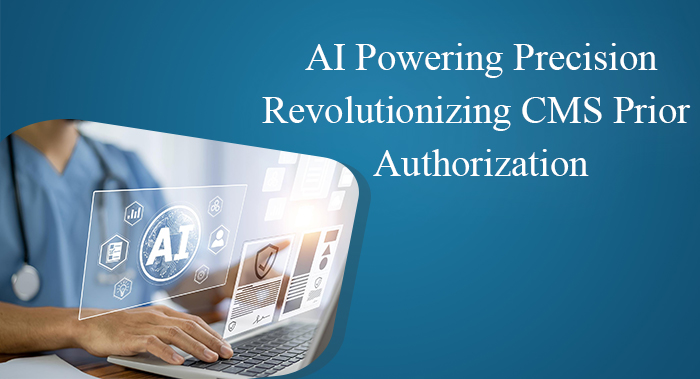
AI Powering Precision - Main Role of Artificial Intelligence in CMS Prior Authorization
In October 2023, the president decided on some rules for how artificial intelligence (AI) can be used in healthcare. This is important because AI can be a powerful tool, but we want to make sure it's used safely. Part of these rules focus on using AI responsibly in healthcare. This means making sure AI helps doctors but doesn't replace their judgment. Another part aims to make sure new medications are affordable.
The government agency in charge of healthcare is also making sure things run smoothly. They created a program to collect information on any problems that might happen when AI is used in healthcare. To explain the rules about responsible AI use even more clearly, another department released a document answering common questions. This document focuses on how AI can be used to make decisions about Medicare Advantage plans. These plans help pay for healthcare costs. The document reminds everyone that AI can be a helpful assistant, but doctors always need to consider each patient's situation when making decisions.
The rule says that Medicare Advantage plans can't just use a one-size-fits-all approach. They need to look at each person's specific situation. This includes things like their medical history, what their doctor recommends, and the official Medicare guidelines. These guidelines are like rules that explain what original Medicare would cover. Medicare Advantage plans need to follow these guidelines when deciding what care they will pay for.
Artificial intelligence (AI) is increasingly playing a role in CMS (Centers for Medicare & Medicaid Services) prior authorization, with the potential to both improve efficiency and raise concerns. AI can be a helpful tool in healthcare. For example, it can suggest what tests a patient might need or how long they might stay in the hospital. But it's important to remember that AI shouldn't make decisions on its own.
Streamlining the Process:
- Automating Reviews: AI can analyze submitted information and patient data to identify requests that meet pre-defined criteria, expediting approvals for routine cases. Payers view PA as a vital component of their utilization management programs, which aim to assess the necessity and appropriateness of medical services, thereby neglecting unnecessary expenses and preventing fraud.
- Reducing Burden: By handling repetitive tasks, AI frees up healthcare providers and insurers to focus on complex cases requiring human expertise. Artificial intelligence in CMS prior authorization aims to ease administrative processes by ensuring that patients receive the most suitable care while controlling costs and minimizing inappropriate service utilization.
Enhancing Decision-Making:
- Data-Driven Insights: AI can analyze vast amounts of medical data to identify patterns and potential areas of misuse, helping insurers make informed decisions about coverage. AI is taking diagnostics at different levels by analyzing vast amounts of medical data with speed and accuracy, assisting healthcare professionals in making precise decisions and lines of treatment with that information.
- Standardization: AI can ensure consistent application of CMS guidelines, reducing variability in approval rates. Outcomes. It involves obtaining preapproval from payers before administering a service or medication, ensuring that patients receive appropriate care in accordance with medical guidelines.
However, there are considerations:
- Transparency: It's crucial to understand how AI algorithms reach decisions to avoid bias and ensure fairness in approvals. AI-enabled PA has the potential to address these challenges by automating a significant portion of manual tasks, thereby increasing efficiency, reducing costs, and allowing healthcare professionals to focus more on delivering care.
- Human Oversight: AI should be a tool to assist human reviewers, not replace them entirely. Complex cases or those with missing information still require human judgment. Imagine a doctor is trying to figure out what's wrong with a patient. AI can suggest some tests that might be helpful. However, the doctor still needs to consider the patient's medical history, what their doctor recommends, and any other details from their medical records. The final decision about what care the patient gets should always be based on their specific situation, not just on what AI suggests.
- Data Bias: AI algorithms trained on biased datasets can perpetuate unfair practices. Careful selection and monitoring of training data is essential.
Overall, AI offers opportunities to make CMS prior authorization faster and more efficient. Still, it should be implemented with caution and human oversight to ensure it serves patients and the healthcare system effectively.






Get the best Artificial Intelligence AI Solutions in Healthcare with Mlhealth They provide reliable easy healthcare AI solutions that are efficient affordable. https://mlhealth360.com/